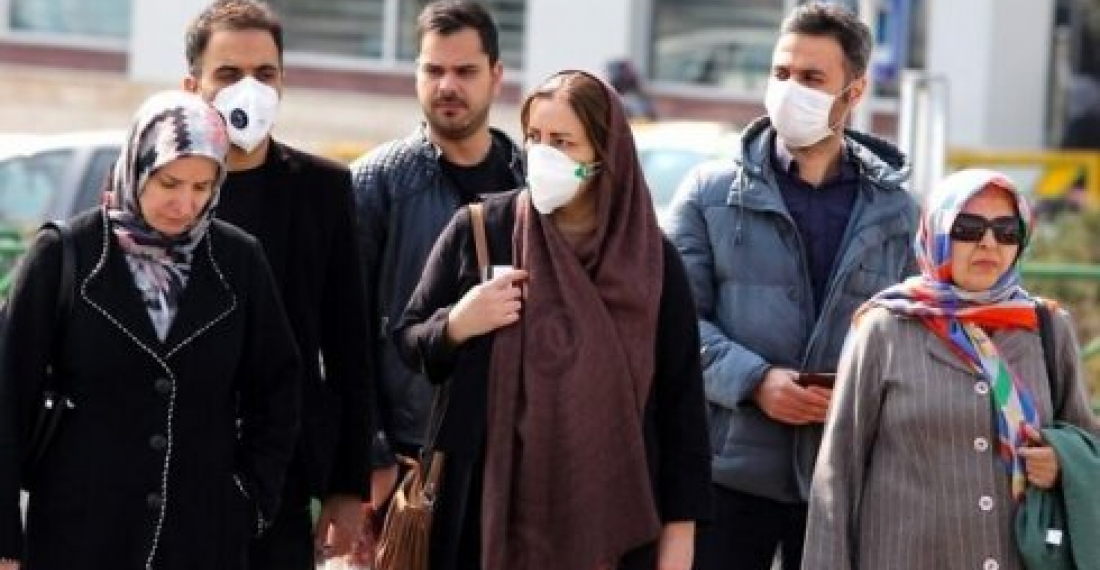With Coronavirus spreading fast in Iran, in the South Caucasus there is a need for fast, efficient, transparent and professional action on the part of governments, and a calm and co-operative response from their citizens, argues Dennis Sammut in this week's commentary.
The spread of the Coronavirus virus (officially called COVID-19), an infectious disease caused by a new virus that had not been previously identified in humans, from China, where it originated at the end of 2019, to the rest of the world, continues despite efforts to contain it. In many ways this is inevitable in our interconnected and globalised world.
Yet for those xenophobes who may think this could have been prevented in a different era - before air transport, and millions of people constantly on the go - one needs to remind them that even the Romans faced similar problems. When they build their roads linking Rome to the provinces they hoped that through them they could move their legions, and do trade. But with trade also came the plague which regularly devastated the Roman city.
Xenophobia is not the way to deal with the Coronavirus threat. Rather what is needed is fast, efficient, transparent and professional response from authorities in different countries, and a calm and co-operative response from their citizens.
The Coronavirus is now at the gate of the South Caucasus countries. The emergence and the spread of the virus to Iran in the last days, and the speed with which it seems to be spreading in there, has created some concerns in the South Caucasus countries some of which share a border with Iran, and all three of which have long historical relationships with the country. There is concern that Iran, a country that has been under sanctions for forty years, may not have the resilience to contain the spread of the virus quickly, although this is as yet to be seen.
The response of the governments in Armenia, Azerbaijan and Georgia has so far been measured, and there is not, yet, panic amongst the populations at large. But this can change very quickly if the virus spreads.
This can and should be prevented. Some golden rules need to be followed:
(1) In the highly charged political environment currently in Armenia, Azerbaijan and Georgia it is important that the issue of Coronavirus is not politicised, even though the governments need to be held to account for how they respond to the crisis. Media and civil society can contribute to this by keeping politicians in check, and leading by example;
(2) It is the duty of governments to keep their populations fully informed of the situation. Trying to hide information about the spread of the virus will prove counter-productive; politicians should avoid the temptation of leading from the front. Let the professionals do the job and communicate with the people;
(3) The response needs to be fast, efficient and professional. There will no doubt be those who will try to use the situation, even for material gain. The governments need to monitor the situation very closely and move quickly against such adventurist. Closing borders or restricting travel always inevitably causes economic disruption and this comes at a cost. Yet it is in many cases inevitable and necessary;
(4) If it reaches the South Caucasus, Coronavirus will test the medical resources of the three countries. Past problems and mistakes may emerge. However the first duty remains to put all resources available in the effort to contain and combat the virus;
(5) The authorities in the three countries need to work closely with international organisations, such as the WHO, as well as with each other and neighbouring countries.
(6) Most importantly, the people of Armenia, Azerbaijan and Georgia need to keep calm and not succumb to panic buying, rumour spreading, or hysterical xenophobia.
Coronavirus will sooner or later be contained. Until then it will continue to be disruptive for the daily life of countries and of people. Lessons should, and will be learnt, about how it emerged and spread. Lessons also need to be learnt about how governments, and people at large have reacted, for in the same way that it is not the first, neither is it the last pandemic the world will have to deal with.
source: Dennis Sammut is Director of LINKS Europe and a member of the editorial team of commonspace.eu
photo: Iranians wear masks in response to the spread of the coronavirus disease (archive picture)
The views expressed in opinion pieces and commentaries do not necessarily reflect the position of commonspace.eu or its partners







